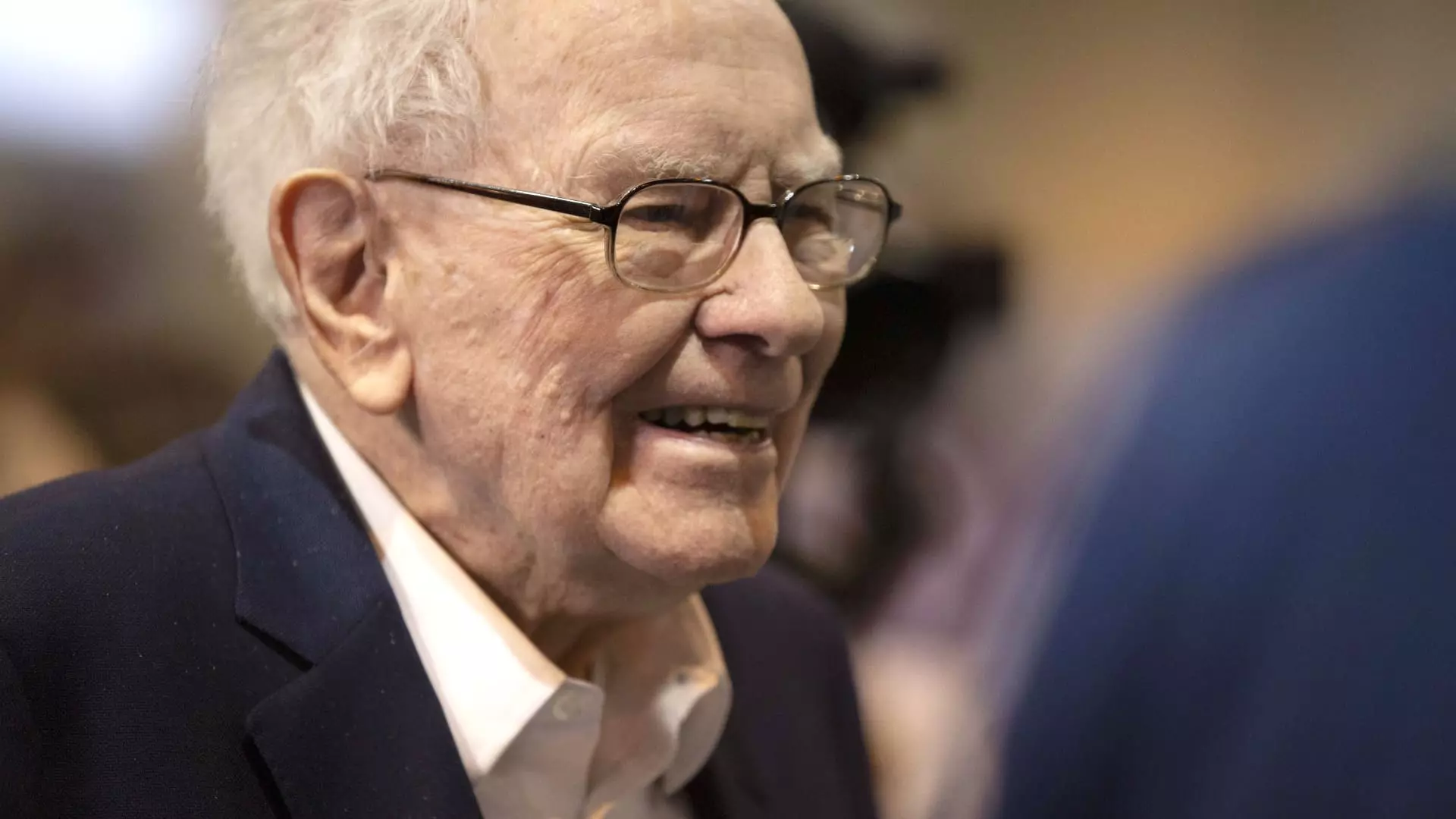Warren Buffett, the iconic investor and CEO of Berkshire Hathaway, has always fascinated the financial world with his investing prowess and unwavering commitment to equities. However, recent developments surrounding his investment strategy have left many puzzled. The latest quarterly report revealed that Buffett sold a significant number of stocks while simultaneously amassing a record cash reserve of $334 billion. This article aims to unravel the implications of Buffett’s defensive positioning, probe potential reasons behind it, and explore what this means for Berkshire shareholders and the market at large.
Buffett’s decision to elevate his cash holdings amidst a bull market is striking, particularly given the historical context of his investing philosophy. Traditionally characterized by bold stock purchases, Buffett has recently adopted a conspicuously cautious approach—one that raises eyebrows among shareholders and analysts alike. His annual letter this year suggested that this defensive posture does not indicate a loss of faith in equities. Instead, he reiterated, “the great majority of your money remains in equities,” asserting that Berkshire’s commitment to stocks remains steadfast.
So why the sudden accumulation of cash? Analysts speculate that Buffett is responding to high market valuations and the scarcity of compelling buying opportunities. The S&P 500 has shown remarkable gains, with a 20% increase each of the last two years, yet Buffett’s reluctance to heavily invest in equities signals a cautious outlook. Perhaps the investment sage anticipates potential corrections or economic slowdowns, which would warrant a safer cash reserve to capitalize on future buying opportunities when the market turns.
In his 2024 letter, Buffett made it clear that Berkshire would prioritize equities over cash in the long run. He emphasized that the conglomerate would never prefer cash-equivalent assets over good businesses, reinforcing the belief that equities yield superior long-term returns. This philosophy, while commendable, raises questions about the short-term strategy. If Buffett continues to sell equities, what is the timeline for deploying the vast pile of cash? How does one justify such a substantial cash position when interest rates may be declining from their multi-year highs?
Buffett’s statements have ignited discussions among investors regarding the broader economic implications. Could this accumulation of cash be a precursor to strategic acquisitions at a downturn? Or is Buffett merely taking a breather, waiting for stocks to become more attractively priced? Without a clear indication, shareholders find themselves in a perplexing situation, grappling with the implications of Buffett’s actions while remaining hopeful for future growth.
As Buffett navigates through this unusual phase, the succession debate has intensified—particularly with the designated successor, Greg Abel, at the forefront. Buffett’s endorsement of Abel’s investment acumen suggests a deliberate attempt to prepare the younger leader for future decision-making. Notably, Buffett identified Abel’s capability to seize opportunities, paralleling him with the late Charlie Munger.
This integration of leadership responsibilities could explain Buffett’s recent stock selling. Perhaps he is methodically curating the portfolio for Abel, positioning him to take the reins during a period of volatility. The persistence of cash accumulation could signal Buffett’s intent for Abel to have ample capital at his disposal when the time is right.
Buffett’s recent emphasis on enhancing Berkshire’s stakes in Japanese trading houses marks another intriguing facet of his investment strategy. His commitment to increasing ownership in these firms suggests Buffett’s recognition of international markets as viable opportunities amidst domestic uncertainties. This maneuver hints at a diversification strategy, mitigating risk while seeking growth outside the U.S. market.
However, the overarching themes of volatility and potential economic slowdown loom large. As the market grapples with growing concerns about slowing economic growth and rapid policy changes, Buffett’s cash reserve may provide not just safety but also flexibility. Should market conditions worsen, Berkshire may emerge as an opportunistic buyer, ready to capitalize on discounted assets.
Buffett’s recent tactical shifts prompt significant inquiry into his future direction and the strategic rationale behind his decisions. While many may view the $334 billion cash reserve as an abandonment of his equity-first philosophy, a closer examination indicates a more nuanced game plan. With economic unpredictability on the horizon, Buffett seems poised to navigate the complexities of investing, balancing caution with opportunism. For shareholders, patience may be essential as they await the eventual unveiling of Buffett’s masterstroke in these uncertain waters.

